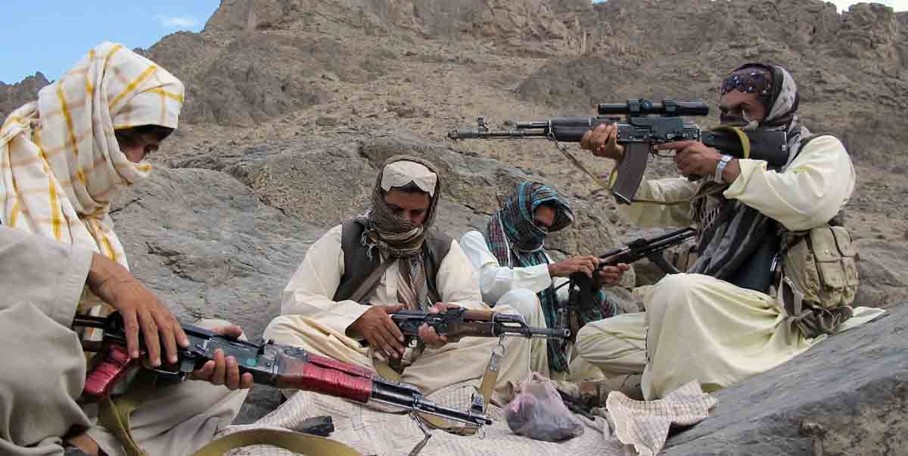On February 14, Iran’s interior minister Dr. Ahmad Vahidi paid a visit to Pakistan against the backdrop of a recent spike in terrorist attacks by Baloch separatists on Pakistani security forces in Balochistan, which shares long borders with Iran and Afghanistan. Vahidi held meetings with Pakistan’s top political and military brass, including Prime Minister Imran Khan and Army chief General Qamar Javed Bajwa, to discuss security mechanisms at the Pakistan-Iran border. Both sides agreed to form a joint working group to oversee border management and security issues between the two countries.
Most rebel groups, including the Balochistan Liberation Front (BLF) and Baloch Liberation Army (BLA), have a presence in Iran’s Sistan-Balochistan province, which borders Balochistan. The Bulaida area of Balochistan’s Kech district, which has been the site of skirmishes between armed forces and Baloch separatists, is just 14 kilometers from the Iranian border. A connection linking Iranian-based Baloch separatist groups to recent terror attacks in Balochistan, therefore, warrants scrutiny.
Indeed, immediately after the Vahidi’s visit, Pakistani security forces conducted a clearance operation in Balochistan’s Kech district, and killed six separatists involved in an attack (Dawn, February 16). Less than two weeks earlier, on the night of January 25, ten Pakistani soldiers were also killed in an attack by Baloch separatists at a security forces’ check post in the same district (Dawn, January 27). Subsequently, in early February, the BLA attacked security forces’ camps in the Panjgur and Naushki areas near Iran’s border. Twenty militants and four soldiers were killed during a heavy exchange of fire.
Is Iran a Safe Haven for Baloch Separatist Insurgents?
In May 2020, Pakistan’s army chief General Qamar Javed Bajwa requested Tehran to thwart terrorist attacks on Pakistani security forces by Baloch separatists allegedly operating from Iran. Bajwa revealed these concerns about border security following an attack on Pakistan’s armed forces in Kech district that killed six Pakistani soldiers. The attack was claimed by the BLA.
The Baloch are scattered in several provinces of Pakistan, Iran and Afghanistan. However, it was Afghanistan-based Baloch separatists who moved to Iran’s province of Sistan-Balochistan following the takeover of Afghanistan by the Taliban in August last year (Gandhara, February 4). The recent attacks on security forces in Kech, Noshki and Panjgur areas of Balochistan were orchestrated by these Baloch rebel groups from Iran. Dr. Allah Nazar, a BLF separatist leader, is also believed to have been operating from Iran against Pakistan.
Similarly, in 2019, Baloch Raaji Ajoi Sangar (BRAS), an umbrella group of Baloch insurgent groups including BLA and BLF, claimed the killings of 14 bus passengers along the border with Iran. Pakistan’s Foreign Minister Shah Mahmood Qureshi at that time called on Tehran to take action against BRAS militants based in Iran. Qureshi stated that “The training camps and logistical camps of this new alliance [BRAS] are inside the Iranian border region. The question, therefore, arises as to whether at least tacit support from Iranian border forces is necessary for these Baloch insurgent groups to operate along the Iranian border and from Iranian territory.
The Cross-Border Terrorism Blame Game
Pakistan has repeatedly raised the issue of the growing presence of Baloch separatist groups with Iran, which are using Iranian soil for launching attacks on Pakistani security forces. Besides Qureshi, for example, in 2020, Islamabad urged Tehran to take effective actions against the separatists operating from Iranian territory during a visit to Pakistan by Iranian foreign minister Javad Zarif.
While Baloch nationalism in Pakistan is secular in nature, it is religious in nature on sectarian lines in Iran. The BLA and BLF are beneficiaries of Iran’s lenient attitude towards them because Iranian security forces have given protection and refuge to them and other Baloch rebel groups. They use this protection to attack Jaishul Adl (JA), or the Army of Justice. This militant group is fighting for the rights of both the Baloch and Sunnis in Iran and have many of their bases in Pakistan.
Iran has itself been the victim of terror attacks orchestrated by Baloch religious-nationalist militants in JA because it is an anti-Iran Sunni Muslim militant group that allegedly operates with the support from local tribes in Balochistan. In 2018, the group claimed responsibility for the abduction of 12 Iranian security personnel in Sistan-Balochistan province. There have also been clashes between JA and Pakistani Baloch separatist groups along Pakistan-Iran border areas.
Conclusion
Without a foolproof security arrangement at the Pakistan-Iran border, Pakistan will not be able to meet the security challenges they suspect are emerging from Iran and affecting Balochistan. The infiltration of the Baloch militants from either side of the border ultimately poses a significant security challenge for both Iran and Pakistan. The fencing work on the 900 kilometer border has been underway since the two nations agreed to fence the border in 2019 for better security management.
Nevertheless, the two countries have been accusing each other of sponsoring rival Baloch militants. In the future China could play a key role because it has heavily invested in Balochistan and plans to invest up to $400 billion in Iran under a strategic partnership deal it signed last year with the Islamic Republic (Global Times, March 29, 2021). Beijing can use its leverage on both countries to press them to cooperate on cross-border terrorism.
Courtesy : Syed Fazl-e-Haider

